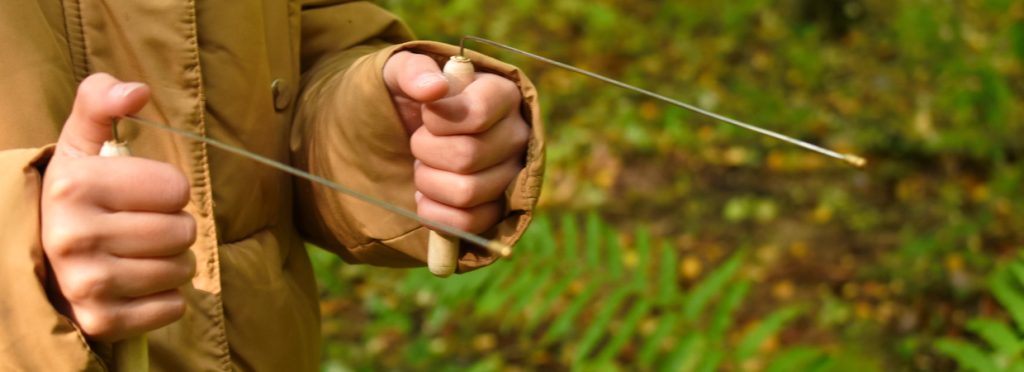Menu

 I picked up a mailing from New Scientist this morning with the headline Two of the UK’s water companies are still using dowsing to find leaks and it rightly says that method is scientifically discredited. But it works for some people and I can attest to the truth of that from the two weeks I spent doing field ethnography in Thames `Water. At the same time, I am starting to pack for a few days in Copenhagen and Helsingor next week so the quote from Hamlet Act 1 Scene 5, 159-167 seemed appropriate; and this also picks up on themes from my post of a few days ago about the evocative power of landscapes.
I picked up a mailing from New Scientist this morning with the headline Two of the UK’s water companies are still using dowsing to find leaks and it rightly says that method is scientifically discredited. But it works for some people and I can attest to the truth of that from the two weeks I spent doing field ethnography in Thames `Water. At the same time, I am starting to pack for a few days in Copenhagen and Helsingor next week so the quote from Hamlet Act 1 Scene 5, 159-167 seemed appropriate; and this also picks up on themes from my post of a few days ago about the evocative power of landscapes.
And there is another connection to our own work with SenseMaker® which shows promise as an ability to measure placebo effects by diarising attitudes and feelings into a quantitative set of frameworks; something that is important for current and impending work on clinical trials. I also know that my own attitudes and belief were key factors in reversing Diabetes II some years ago. And living where I do walks to Avebury frequently end up in the Henge Shop which is the place to go if you want healing crystals, scrying pendulums and the like, not to mention last-minute Christmas and birthday presents. I’ve previously stated that I’ve used astrology and the Harry Potter sorting hat test in team development and on one memorable occasion I Ching sticks in an exercise on strategy.
Now, whenever I have observed or experienced these various non-scientific approaches work it hasn’t tempted me to believe the evangelical claims of their advocates. I had interesting exchanges with such enthusiasts for the mysterious over the years as they can’t understand my wider point that humans use objects, and objects where meaning has evolved over time to make sense of the present, past and future. We like artefacts and we invest them with meaning and they tap into aspects of human sense-making that we don’t fully understand yet. As I said in my landscape post, after 50-plus years I can sense paths at a distance and follow them on the ground if I don’t think about it too much. I’m sure that is what was happening with my water engineers and two quotes from scientists in the referenced article make the point well:
“It’s down to the ideomotor effect, which is a posh way of saying they’re moving the dowsing rods without realising it, with unconscious muscular movements,” he says. “There are a number of other related phenomena; it’s the same thing with ouija boards.”
“It’s possible experienced dowsers are picking up cues in the environment unconsciously, and then the rods are an indication of that. So you realise that certain plants look particularly green, or you’ve got certain plants growing in particular places, and maybe there’s water underneath,” he says. “What we know is that they’re not detecting water directly, because all the lab tests have shown that they will just fail.”
It is appropriate in organisational design to create objects and ritualise their use. When we get lorry/truck drivers to strap on a heated belt before unloading their vehicle, yes we can attribute direct effects from straightening the back and the heat improving flexibility but the main impact is changing the various physical and cognitive aspects of their response to a situation to create a more beneficial outcome. In general, evolution doesn’t throw out things that don’t have utility and dowsing rods fall into that category, as long as we don’t assume they are any more than a way of concentrating human sense-making capability.
Both images are Adobe stock used under license
Cognitive Edge Ltd. & Cognitive Edge Pte. trading as The Cynefin Company and The Cynefin Centre.
© COPYRIGHT 2024

I’ve been feeling a little frustrated over the last ten days. I spent the previous ...
The picture on the left was taken on 18th June 2018 when I collected my ...